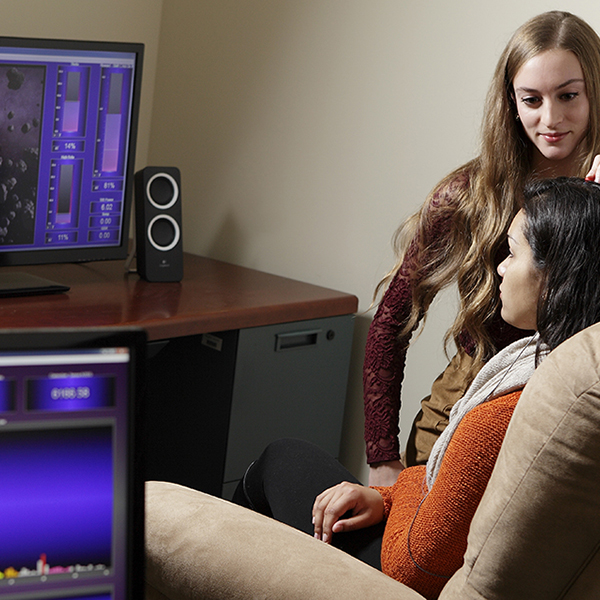As a philosophy major at Wilkes, you will learn to think clearly, critically evaluate claims, recognize relevant ethical considerations, appreciate diverse perspectives and articulate and defend arguments—skills that will serve you well in life and in any career you choose.
Program Snapshot
| Program Type | Format | Credit Hours |
|---|---|---|
| Major, Minor | On Campus | 120 (18 for minor) |
Why Study Philosophy at Wilkes?
Because philosophy class sizes are small, you’ll develop a connection with your professors that you wouldn’t get at a larger school. And the program offers interesting and unique courses that cover a broad spectrum of topics.
The philosophy major also affords you the freedom to pursue coursework in many other programs. This flexibility allows you to design your academic path by double majoring in your area of interest, and choosing from a wide array of minors. Philosophy naturally and easily combines with other programs at Wilkes to provide the comprehensive and competitive training and prepare you for success.
What Will You Learn as a Philosophy Student?
- You will develop valuable skills including critical thinking, problem solving, organizing and presenting complex ideas in an easily understandable format.
- You will achieve clarity of thought, precision in analysis of conflicting claims, power to render sound judgments based upon appreciation of differing perspectives, and ability to express and defend your own views with force and imagination.
- You will learn to recognize the strengths and weaknesses of arguments and weighing factors in decision making.
- You’ll study important ethical theories, contemplate conceptions of the good life and confront ethical dilemmas in fields like business, the environment, neuroscience, medicine and health care.
- You’ll have the opportunity to take a variety of philosophy courses both traditional and topical, including Violence and Nonviolence, Animal Minds & Animal Lives, and Neuroethics, as well as special topics courses like Science & Society, Virtues and Vices in Life and Literature, and Philosophy of Race, Class and Gender.


